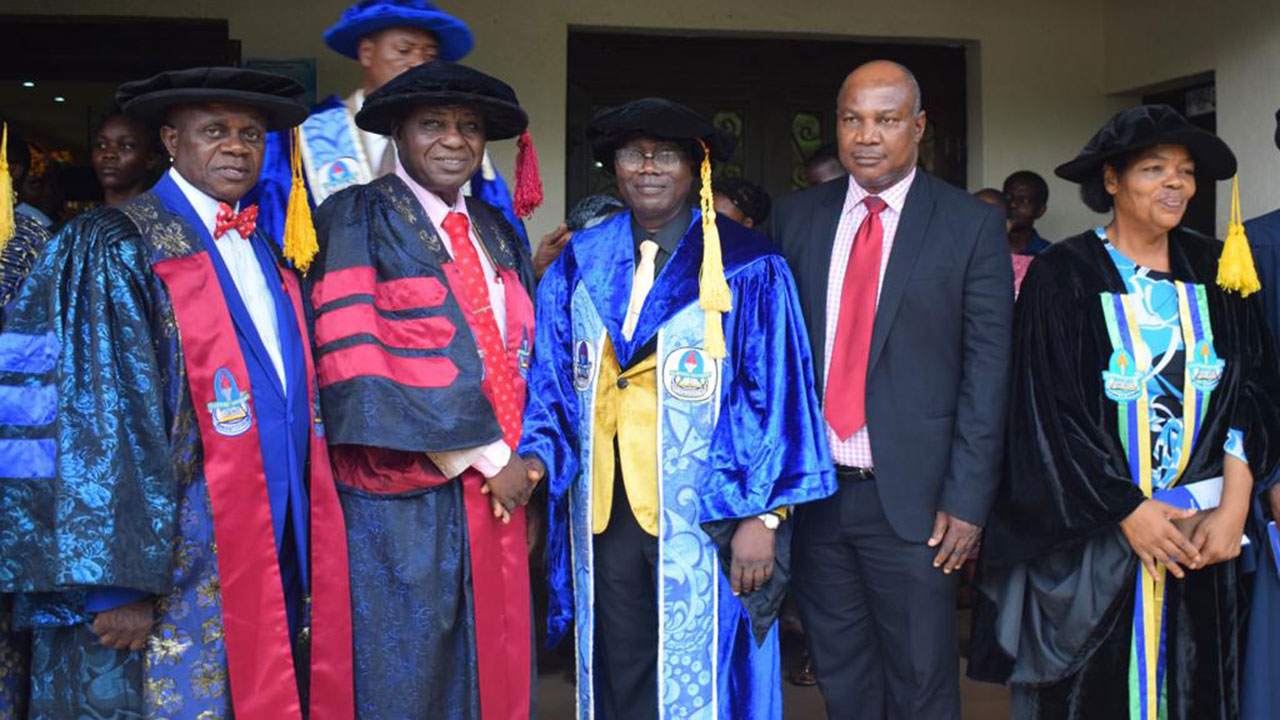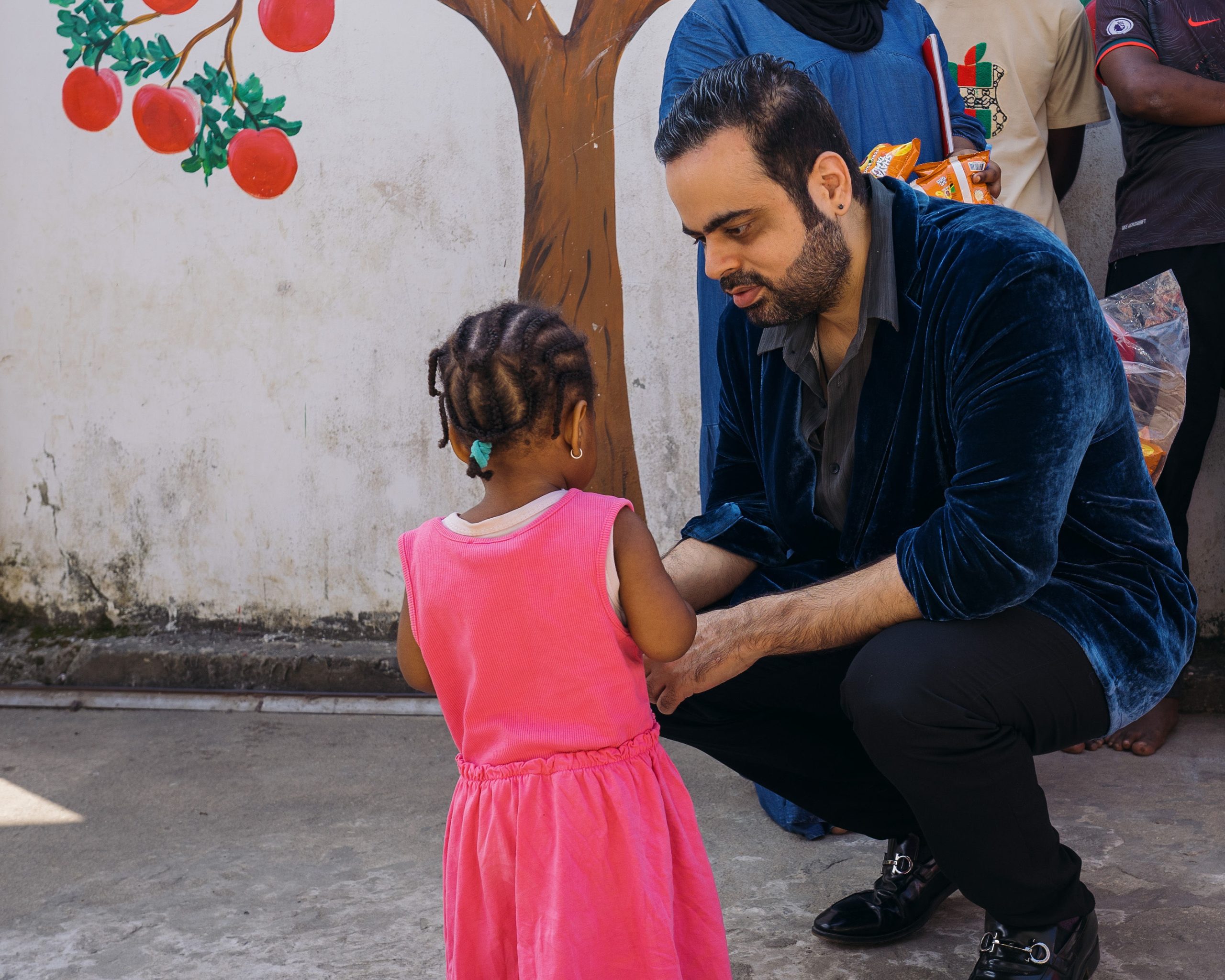
Delivering Crawford University 8th Inaugural Lecture titled “Nigeria Economic Fortune: Going Back to the Rocks”, Adeola said that “Economic Geology” is a veritable tool for the nation’s growth and an important branch of Geology that deals with different aspects of economic minerals being utilised by mankind to meet his various needs.
He noted that Economic Geology is a discipline of science that focuses on earth materials that can be used for economic or industrial development, adding that the purpose of studying economic minerals is to identify new ore deposits for excavation as well as understanding how ore deposits are generated and localised within the Earth’s crust.
“An overview of solid mineral resources’ distribution in map of Nigeria are iron ore, gold, diamond, Uranium, Copper, Gemstone, Manganese, talc/asbestos, clay, mica, limestone, lithium, kaolin, glass sand, quartz, bitumen, marble, columbite, lead/zinc, gypsum, bentonite, barite, coal, rock salt among others.”
Adeola noted that the mining industrial sector has been identified for great potential as a major foreign exchange earner for the country. Experts, he observed, have said if properly harnessed, mining industry could contribute about seven per cent to the country’s Gross Domestic Product annually. It further said that it contributed five per cent to the economy in 1980 before declining to less than one per cent as at 2022. At the moment, he said the country can boast of over 44 solid minerals that can boost the nation’s GDP.
“As a profession, an economic geologist studies mineral deposits and the processes leading to their formation. Information provided by an economic geologist is extremely useful to mining companies as it helps them locate and understand the resource they are mining. In addition, Economic geologists apply geological principles to solve practical problems in the mining industry.
“Their training equips them to run the Geology Department on a mine and to organise result oriented prospecting programme in the field. Interestingly, an economic geologist has a wide range of employment opportunities such as being self employed as a consultant to the mining industry or be employed by government parastatals such as the Geological Survey Agency, Ministry of Commerce and Industries, Water Affairs, museums, Chamber of Mines, civil engineering firms, lecturers in the universities, mining companies working on solid minerals.”
As an outcome of going to the rock, Adeolas said that Nigeria economy would be vibrant for the benefits of the people as a nation.
Adeola could recall his starting point as a scientist, saying “I was best student in Geography though I was a Pure Science student. I had an unusual interest in science subjects, and many people thought that I would become a good medical doctor or a pharmacist. I wish to say unequivocally that I had no iota of interest in medicine or pharmacy. My desire was to study Agricultural Engineering and be practicing mechanized faming using the latest technology in my farm. This dream was shattered by one of our family friends who counselled me not to study Agricultural Engineering.”
“I would end up as a Physics teacher because at that time, nobody was employing them and one could hardly receive financial assistance from the Ministry of Agriculture. I had to drop the idea because I did not want to be a Physics teacher. I knew nothing about Geology while in secondary school. It was my beloved father, late Dr. Prince Adolphus Adesegun Erinle who was my unusual friend and a great confidant that introduced Geology and Petroleum Engineering to me for the first time when I was about to fill the Joint Admission Matriculation Board (JAMB) form.”
He jokingly added that a Geologist or Petroleum Engineer used to work in the oil company where he or she would be receiving ‘fantabulous salary and mouth-watering’ allowances. “I therefore quickly changed my mind to study either of the two. When I checked the meaning of geology in the dictionary, I discovered that geology is the study of rocks and only science students can study geology, because, it involves applications of sciences in studying and understanding the earth and its structures.
“I was eventually admitted to the University of Ife, now Obafemi Awolowo University, Ile lfe to study Geology in 1984. The first geologic field exercise at 100 level sparked off my love for the course beyond measure, because, we were taken to the places of geologic and economic interests under the headship of Professor M.A. Rahaman who eventually supervised my undergraduate project with Dr. Ojok Ocan as a co-supervisor. Professor M.A. Rahaman gave me a solid and vibrant foundation while working under him. He taught me perseverance and how to remain focus during research. Eventually, he became my professional father and very close confidant.”
Adeola disclosed that right from his undergraduate days, geologic field exercises have been his hobby, searching for the hidden treasures of the earth. “In fact I was the best student in the Independent Geologic Mapping Exercise in 1986/1987 academic session with an excellent grade. In 1989, I was invited by Professor M.A. Rahaman to join an Exploration Team headed by Professor Yemi Oshin just few weeks after my degree programme to explore for iron ore around Muro-Toto – Gadabuke area in Plateau State.
Adeola is a lecturer in the Department of Physical and Earth Sciences of Crawford University since 2007and rose through the ranks to the Professorial position in the year 2020. He was the coordinator of Geology and Mineral Science programme for almost seven years, and later became the Head of Department of Physical and Earth Sciences from 2015 to 2018. He was the Vice Dean of the College of Natural and Applied Sciences from 2015 to 2018 and the acting Dean of the College between 2018 and 2020 while from October 2020 to date, he has been the Dean of the College of Natural and Applied Sciences (CONAS) of Crawford University, Igbesa, Ogun State.
Adeola was a member of the University Governing Council representing the Senate between 2015 and 2018. Currently, he is a member of Senate and the Chairman of the Business Committee of Senate.






